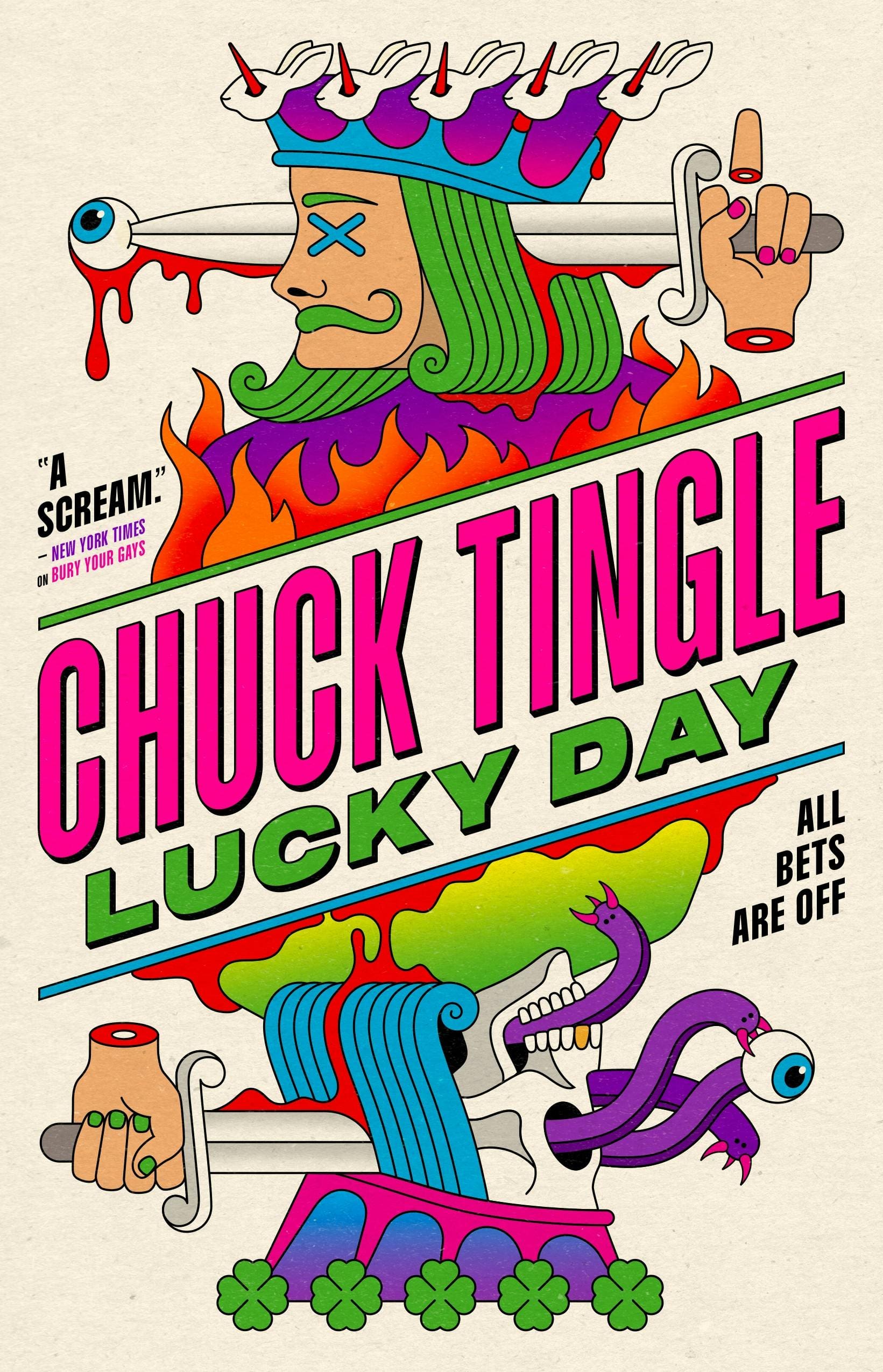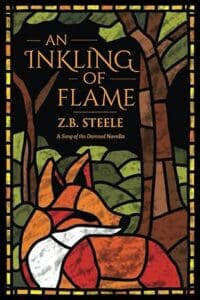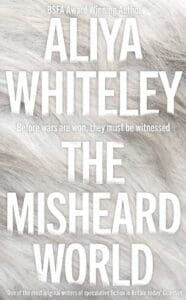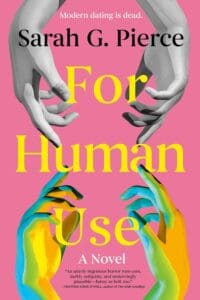
Synopsis
A statistics professor tries to a survive a series of gruesome and impossibly unlikely disasters linked to a supernaturally lucky Vegas casino, while dealing with her own erasure as a bisexual, in this chilling and quick-witted horror novel.
Vera, a bisexual statistics professor, is one of the survivors of a global disaster of a new kind – the Low Probability Event. What should have been a simple family lunch turns into an absurd catastrophe raining fish, parade balloons, exploding manholes and brutally violent animal attacks.
Washed up the aftermath, it’s only when the handsome, but problematic, government agent Layne knocks on her door that she is offered a glimpse of meaning to life. Layne is investigating the Low Probability Event, and believes the deadly absurd events may be linked to an improbably lucky casino.
As they hit the road to try and make sense of the meaningless chaos of life, only one thing is clear – what happens in Vegas isn’t staying there…
Review
Gibbons.
Bumfuzzle.
Plethora.
Seventy-seven sanguine samurai swallowing satsumas simultaneously.
I bet you never expected my review to start with this collection of odd words, stitched together in the order that they happen to be lined up. Well, in Chuck Tingle’s Lucky Day, you should expect the unexpected, as it teaches us that the improbable is much more probable than you could ever have imagined. However, Lucky Day is much more than just a book about random improbability manifesting in the strangest of ways, and it is instead a book about facing the abject chaos of the universe, standing up to it, and screaming back into its uncomprehending maw.
Lucky Day – my first Tingle novel, but certainly not my first experience with the anonymous author – follows Vera, a bisexual statistics professor, who gets caught up in the Low Probability Event, an event where seemingly random things, often with bloody and violent consequences, erupts across the globe. In the aftermath of all this chaos, Vera is approached by Agent Layne, a special agent tasked with investigating an improbably lucky casino. What follows is an absurd, uproarious, bloody, over the top extravaganza of an existential crisis, condensed into just over 220 pages.
Its short run time is an achievement, considering everything that gets packed into the book. From its themes to its characters to the (not so subtle) allegory for COVID and the rise of authoritarianism, Tingle crams in multiple talking points and messages, and every single one is handled expertly and with deft. Nothing feels shortchanged here. Instead, everything the book explores it does so richly, never belabouring a point ad nauseum and always making its statement in a concise and thought-provoking manner, oft times leaving you with just enough room to allow discussion too.
The Low Probability Event, and the life-changing consequences it has for society, is so very much a reflection of the COVID experience. I’m gonna preface this bit briefly – I was very lucky during this period (very apt I suppose), as I remained untouched by the virus during lockdown era, and whilst I had a few friends and family who did suffer with it, again it was very lucky that these people close to me were only mildly affected. However, I still acknowledge that this whole time – often something that feels both like a reset and yet also just a blip in life – felt like chaos. It managed to highlight several failings within societal structure – work/life balance, consumerism, environmental impact of normal human life – and there was an anxiety at the time about what the “new-normal” would be post-COVID. Everyone was expecting some drastic change in how governments work, how we live our lives, will we be constantly distancing ourselves physically from others, will office working finally be a thing of the past now that technology allows us to work anywhere and still be effective; will we be forced to play Zoom quizzes every night? And then, 4 years later, things are back to kind of the same way they used to be. Nothing has changed. So, what was the point in it all? Lucky Day dissects this brilliantly, even having a similar time frame from when the LPE happens to when we next catch up with Vera. It shows us that nothing much has changed, for a lot of people life just carries on, but for others, this massively chaotic period that blindsided a lot of people, was devastating for others. Ultimately, the larger population, the world in general, has just carried on with life, regardless of what Vera or you feel. It’s completely indifferent to everything else other than its own continued existence. So, this initial, smaller scale crisis (which is a ridiculous thing to say, what with the LPE being a world changing event, but I hope you get what I mean shortly), is the perfect mirror to the larger existential question that the book asks; what exactly is the point of it all? And in the chaotic indifference of the universe, should we even try? It’s not the philosophically mind-melting question that I was expecting when I first opened this book. From the premise alone, I expected a quirky, darkly funny book that was truly about… well, something, of course, but I’d just have to read it and find out. And whilst it is both quirky and darkly funny, it’s also sad, melancholic, deflating. On the flip side, its also hopeful, bright, enlightening, and best of all, inspiring. As a whole, it becomes a package that is deeply satisfying to experience, and it really has made me adapt to how I view all the little things in life – all those small inconsequential decisions I make and how they ultimately do have meaning and consequence, that the power of nothing, truly chaotic nothing, can have its own value that we carve from it until it is made into something amazing and worth fighting the darkness for, because these decisions, these coincidences, this moments we disregard, the moments we cherish or that haunt us, the big picture they paint, our lives and our experiences, they are ultimately beautiful, unique, incredible, and every single one of them weaving together with countless other people’s threads of choices are the reason why we as humans live. Its one of those books that lingers in your mind with its thesis, as Chuck Tingle starts with what is seemingly a disparate, random collection of elements, before connecting them together in a way that is so, so rewarding as the reader. Tingle’s works often deal with the greatest of human emotion; love. And this one says that the love of life is worth everything, and love will make everything that much more colourful.
I’ve managed to say all this waffle without even really mentioning my favourite aspect of any book, and that’s the characters. We are firmly rooted in the head of Vera, a statistics professor whose life, and very purpose for being, is thrown into disarray after the Low Probability Event hits Earth. She’s a deeply damaged character, even before this cataclysmic moment, not helped by having her own sexuality brought into question by her mother (someone she has a very tenuous relationship with at best). Vera has her own bisexuality dismissed a few times throughout the book, and I will be honest, whilst I know the dismissal of bisexual people, even amongst the LGBTQ+ community, is a problem, I didn’t understand why it was feature of the book at first. I was grateful for the representation – something that Tingle does that feels natural, like it absolutely should, and not like other authors where the queer characters feel like their main characteristic is the fact that they are queer – and it wasn’t the representation that I had a problem with of course (I’m not a dickhead, after all), it was the why Vera’s sexuality was being questioned. I was confused AT FIRST. I need to make that very clear; there were a few elements that I didn’t understand their relevance until later. Stick with this because Tingle has a reason for all these being present in the book, as I mentioned before. Vera starts a very guarded person and then becomes more guarded and depressed. Her depression felt real and really resonated with my own lowest points. Maybe it is just me, but I did dislike how often she would actively fight against the things that made her feel positive emotions, even if she was naturally succumbing to these good feelings. There were times where she catches herself being mildly happy or amused and works to actively get back to the darkness. It came across as sometimes, for want of a better phrase, that she was just an asshole and not someone suffering. Yes, we get a big insight into her suffering, but sometimes her desire to avoid the good felt forced and a little grating. She turned a corner for me during a scene at a diner, and ended up being one of my favourite characters this year. Agent Layne, the special government agent who whisks Vera away onto this crazy mission, is more than comedic relief, and his arc throughout the novel is funny, tragic, quirky, and fulfilling, again like much else of this book. He often had many laugh out loud moments for me!
I also must mention that this book can go pretty insane at times! So many moments of just pure cinematic craziness, and I’d absolutely love to see this book adapted to film by Edgar Wright or the Daniels. I don’t want to spoil some of the zaniness you’ll come across here, so I’ll leave this vague. I will say; there is one particular death scene that is the most gruesome thing I’ve read this year. It actually made me feel ill, and I’m pretty strong willed!
Lucky Day is a spectacularly crazy book, one that is both incredibly fun to read, deeply questioning and thought provoking, joyous in its celebration of the meaning of living, defiant in the face of everything that’s wrong with the world, society, and inspiring in its ultimate message. Tingle tells us to stand up to the darkness, no matter how incomprehensible and vast, face it and all the injustice it brings to this world, and scream back at it. Get up when your down and keep pushing for the light. Because the meaning you find at the end is worth the love of being alive.
With thanks to Titan Books for the ARC in exchange for an honest review.








Leave a Reply